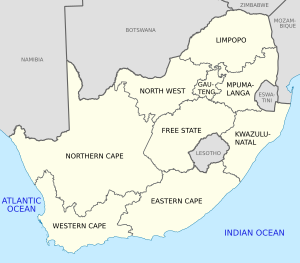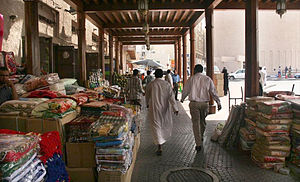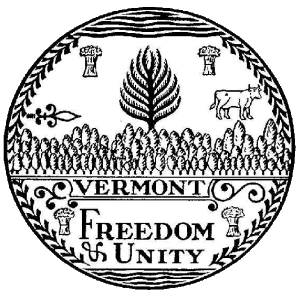By Jamie Rogers
Published: April 26, 2010
Updated: April 26, 2010
COLUMBIA — Human trafficking is a global problem that affects an estimated two million people worldwide.
And it takes the FBI — the only U.S. agency that has jurisdiction on the moon — to stamp out such a widespread problem, which investigators and victims’ advocates say exists in South Carolina.
The FBI enforces federal laws on human trafficking and works closely with the U.S.
Immigration and Customs Enforcement (ICE) as well as local law enforcement officers to investigate individual cases of trafficking, FBI Special Agent in Charge David A. Thomas said.
“Civil rights has always been a primary function of the FBI and human trafficking is no different,” Thomas said. “A lot of people you go out and talk to, unfortunately, assume that slavery went away in the United States and in the world, but we still have slavery. Human trafficking is still going on, so the bureau does vigorously enforce (laws).
“We are always very concerned about that, especially here in South Carolina. It’s a priority for us as well as in our other offices.”
Human trafficking, like
drug trafficking, follows the same routes, said Betty Houbion, vice president of the Eastern Carolina Coalition Against Human Trafficking. Interstates 95 and 85, which run through South Carolina, connects cities like New York and Atlanta which are major trafficking hubs.
Investigations
The investigation of trafficking cases are notoriously difficult for all agencies, even the FBI, an agency that keeps an agent trained and ready to go up on a space shuttle to investigate any crime committed in outer space. Investigating is difficult because very rarely do human trafficking victims come forward, Thomas said.
Most victims are women who are in some sort of indentured situation and don’t have the ability to get out and talk to someone, he said.
Others have been intimidated into thinking their families will be killed if they don’t cooperate, so they remain quiet just to keep their families safe from traffickers, Thomas said.
Agents assigned to the FBI’s Civil Rights program work on human trafficking cases, he said. No agents are assigned to work only trafficking cases; rather, they investigate all crimes related to civil rights.
“If an allegation is reported to us, then we would go out and start investigating,” Thomas said.
The FBI tries to establish whether there is, in fact a human trafficking case, and if so, whether it falls under the federal umbrella, he said.
“A lot of times we work in conjunction. Most of the time the complaints will probably come into the local agencies first,” Thomas said. “They have a lot more coverage out in the community than we would.
So a lot of our referrals or complaints come from our local law enforcement partners.”
But many in local law enforcement aren’t familiar with laws against human trafficking, said Michael Hildebrand, a Greenville County sheriff’s sergeant who investigates human trafficking crimes.
“Some of us in law enforcement are a little hard-headed, sometimes we don’t believe (trafficking victims) have basic
human rights,” he said.
Some officers are “turned off” by suspected human trafficking and they don’t want to deal with it because it’s immigration-related, Hildebrand said.
“There’s that stereotype in law enforcement that you are an illegal ... that you don’t have rights,” he said.
Victims’ rights
The Trafficking Victim’s Protection Act of 2000 (TVPA) is a federal law against human trafficking. The law covers acts involved in the recruitment, abduction, transport, harboring, transfer, sale or receipt of person through fraud or coercion or forced labor or commercial sex against their will, Hildebrand said.
Even attempting to do these things is a federal crime, he said.
The attempt aspect of the law is crucial because it allows law enforcement to focus on the intent of the suspect rather then proving that the victim’s free will was overcome, Hildebrand said.
TVPA is a victim-centered law, which means that even trafficking victims who are illegal in the United States are eligible for assistant if they are willing to aid in the prosecution of their traffickers, Hildebrand said.
Victims can obtain a legal temporary status for three years if they cooperate with officials, FBI Special Agent Michael Beauford said. Victim are also eligible for medical care, witness protection, housing assistance and other social services.
Thomas said investigators and prosecutors don’t want to automatically deport victims because they must testify in court.
“When the victims are here illegally, there’s a question about their status. The (FI) victim witness person assists them in obtaining a status for being here — in other words, obtaining a Visa,” Beauford said.
State law
South Carolina is one of only a handful of states in the Union that has its own law on trafficking, said Betty Houbion, vice president of the Eastern Carolina Coalition Against Human Trafficking.
The not-for-profit organization, which advocates for trafficking victims and educates first responders and law enforcement officers, is pushing for state lawmakers to strengthen the laws already on the books, she said.
Bill H4522 Human Trafficking would create asset forfeiture for convicted
human traffickers and funds for victims and law enforcement, Houbion said.
H4522 provides funding for victim assistance, law enforcement training, and local law enforcement investigations and prosecutions, through asset forfeiture by the perpetrators of this crime. The bill also would allow integrated law enforcement investigation and interjurisdictional prosecution.
The bill is being considered by the House Judiciary Committee, and advocates of the bill are working to move it to the House before May 1, Houbion said.
Another human trafficking bill,4202, if passed would stiffen the penalty from a maximum of 15 years to a maximum of 30 years. That bill has moved from the House to the Senate for consideration, she said.
The Eastern Coalition would like to see 4202 contain a clause that requires the convicted person to be deported if they aren’t a U.S. Citizen, Houbion said.
For more information about the bill and other human trafficking-related issues, call the Eastern Carolina Coalition Against Human Trafficking at (843) 357-7010.
Stopping human trafficking not an easy task | SCNow
 Image via Wikipedia
Image via Wikipedia![Reblog this post [with Zemanta]](http://img.zemanta.com/reblog_e.png?x-id=567fc809-d92a-4713-8ba5-8f12b992dd7d)
![Reblog this post [with Zemanta]](http://img.zemanta.com/reblog_e.png?x-id=d962328d-c91c-491f-a163-c2473d677e78)
![Reblog this post [with Zemanta]](http://img.zemanta.com/reblog_e.png?x-id=8300b723-4df9-471d-8bd4-40507380f9a4)
![Reblog this post [with Zemanta]](http://img.zemanta.com/reblog_e.png?x-id=7b3edee4-87dc-4698-8ccb-3f149297f9a2)

![Reblog this post [with Zemanta]](http://img.zemanta.com/reblog_e.png?x-id=7536838d-cc6a-4446-9611-bf3a959878bc)
![Reblog this post [with Zemanta]](http://img.zemanta.com/reblog_e.png?x-id=c3703205-2ebe-4041-ba83-b95242e45733)
![Reblog this post [with Zemanta]](http://img.zemanta.com/reblog_e.png?x-id=df0f46e6-138d-4f0d-aad2-6ed7916d8a57)
![Reblog this post [with Zemanta]](http://img.zemanta.com/reblog_e.png?x-id=59541678-0414-4724-b947-92fbc0a71932)

![Reblog this post [with Zemanta]](http://img.zemanta.com/reblog_e.png?x-id=1968d12b-1536-4a12-b244-72215fce0c41)

![Reblog this post [with Zemanta]](http://img.zemanta.com/reblog_e.png?x-id=721b903c-f8c0-4264-aa80-cc9727373c36)

![Reblog this post [with Zemanta]](http://img.zemanta.com/reblog_e.png?x-id=f51bc865-3968-44b8-a730-191ad859ff2a)
![Reblog this post [with Zemanta]](http://img.zemanta.com/reblog_e.png?x-id=ea85fdae-8c33-4c1b-a6ef-17b6b831d86d)

![Reblog this post [with Zemanta]](http://img.zemanta.com/reblog_e.png?x-id=3c05ef61-6e31-457e-b1fa-14272b96ed4f)
![Reblog this post [with Zemanta]](http://img.zemanta.com/reblog_e.png?x-id=e17f516b-09fc-42b9-919f-5d06aa00be04)

![Reblog this post [with Zemanta]](http://img.zemanta.com/reblog_e.png?x-id=315a99f3-0bc8-4bd7-9e68-7198b6976447)

![Reblog this post [with Zemanta]](http://img.zemanta.com/reblog_e.png?x-id=74ee6602-6bc5-4f03-a0d8-c60f50475e50)
